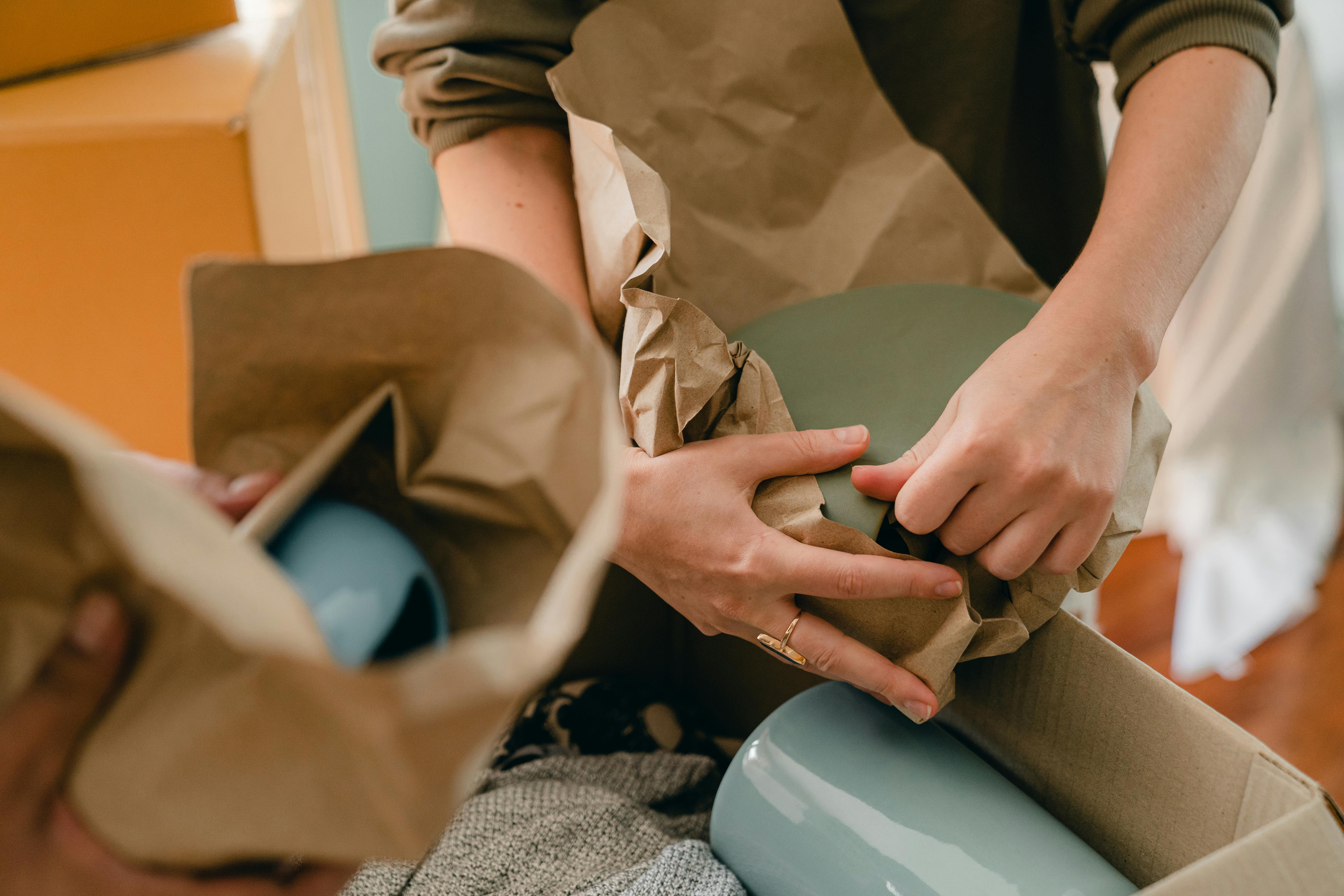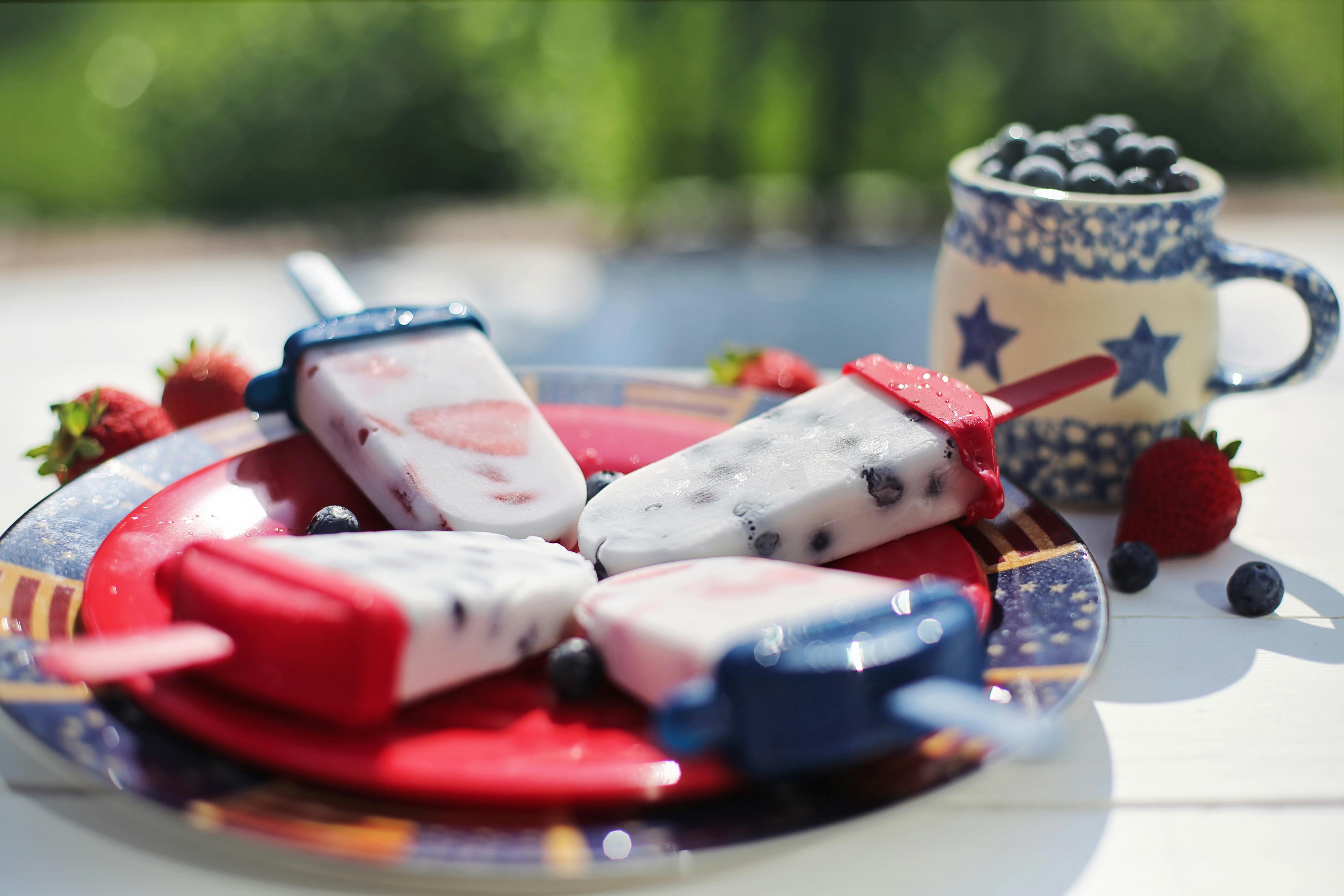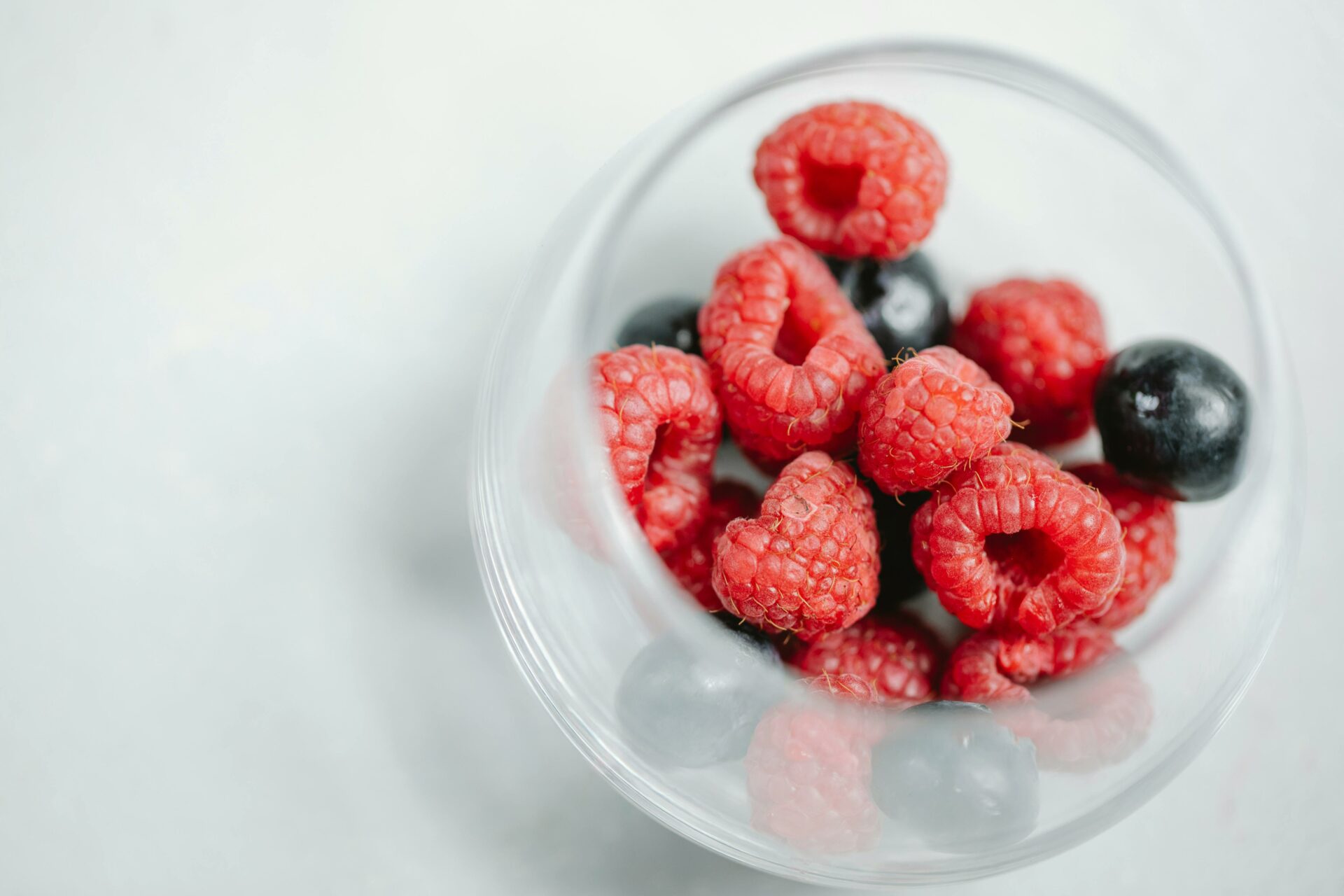One of the most common questions asked by bakers and chefs alike is “how many blueberries are in 1/2 cup?” Whether you’re making a pie, muffins, or just snacking on these delicious berries, knowing how many blueberries are in one-half cup can help you measure your ingredients accurately. In this article, we’ll explore the answer to this question and provide helpful tips for measuring blueberries.Approximately 96 blueberries make up a 1/2 cup.
Nutritional Content of 1/2 Cup of Blueberries
Blueberries are a powerhouse of nutrition. A half-cup serving provides about 40 calories, 10 grams of carbohydrates, 1 gram of protein, and almost no fat. Blueberries are also a good source of dietary fiber, with 2.4 grams per serving, or 10 percent of the recommended daily value for adults. They are also an excellent source of antioxidants and vitamins C and K.
Blueberries are packed with beneficial phytonutrients which act as antioxidants, helping to protect the body from oxidative stress. These phytonutrients include anthocyanins, which give blueberries their dark blue color and have been linked to several health benefits such as improved heart health and cognitive function. Other phytonutrients found in blueberries include proanthocyanidins, flavonols, hydroxycinnamic acids, stilbenes, and phenolic acids.
In addition to their high antioxidant content, blueberries contain several essential vitamins and minerals such as vitamin C (14% DV), vitamin K (9% DV), manganese (25% DV), copper (6% DV), magnesium (4% DV), iron (2% DV) and zinc (2% DV). They also provide a good amount of folate (5% DV) and potassium (3% DV).
Overall, blueberries are an excellent source of nutrition that can be enjoyed in many different ways. Whether you enjoy them fresh or frozen in smoothies or yogurt parfaits, they make a delicious addition to any meal!
Measuring 1/2 Cup of Blueberries
Measuring out a precise amount of blueberries doesn’t have to be difficult. Start by finding a dry measuring cup with a 1/2 cup measurement line. Make sure the measuring cup is level on a flat surface and fill it with the desired amount of blueberries. Gently shake the side of the cup to settle the berries and then use your finger to level off the top. If necessary, add or remove a few berries until you reach an accurate measure.
If you don’t have access to a measuring cup, you can also use other kitchen tools such as spoons or cups. A tablespoon holds about three-fourths of an ounce, so if you need one-half cup for your recipe, measure out 6 tablespoons (or 18 teaspoons). For larger amounts, one-half cup is equal to 8 tablespoons or 24 teaspoons.
Another option is to weigh the blueberries on a kitchen scale. One-half cup of blueberries typically weighs around 60 grams. While this method might be more accurate than using spoons or cups, it’s not always feasible if you don’t have access to a kitchen scale.
No matter which method you use, make sure that you measure accurately for best results in your recipes!
Storing Blueberries for Maximum Preservation
Blueberries are a versatile and tasty fruit that can be enjoyed in a variety of ways. However, like all fresh produce, they have a limited shelf life. To ensure the best quality and flavor, it is important to store blueberries correctly in order to maximize their preservation. Here are some tips for how to store blueberries for maximum preservation:
The most important thing to remember when storing blueberries is that they should be kept cool and dry. Blueberries should be stored in the refrigerator as soon as possible after purchase or picking. When storing blueberries in the refrigerator, place them in an airtight container or plastic bag with holes punched into it to allow for adequate ventilation.
It is also important to keep blueberries away from ethylene-producing fruits such as apples, bananas, and pears. Ethylene is a natural gas that causes fruits and vegetables to ripen faster, which can cause them to spoil more quickly. Therefore, it is best to store blueberries separately from other produce items.
Blueberries should also be inspected prior to storage and any with signs of spoilage should be discarded immediately. This includes bruised or moldy berries. Blueberries can also last longer if they are rinsed with cold water before being stored in the refrigerator; this helps remove any dirt or residue that may be present on the berries.
Finally, if you have too many blueberries for your refrigerator’s capacity, you can freeze them for long-term storage. To freeze blueberries, spread them out on a baking sheet lined with parchment paper and place them in the freezer until frozen solid (about 2 hours). Once frozen solid, transfer the berries into an airtight plastic bag or container and store in the freezer until ready to use. Frozen blueberries will stay fresh for up to one year when stored correctly.
By following these tips for storing blueberries correctly, you can maximize their shelf life and enjoy their delicious flavor for much longer!
Benefits of Eating 1/2 Cup of Blueberries
Eating a 1/2 cup of blueberries can provide a variety of benefits. Blueberries are full of antioxidants, which help to reduce inflammation in the body and protect against many diseases. They are also a great source of vitamins and minerals, including vitamin C, vitamin K, and manganese. The fiber in blueberries can help to keep you feeling full and can aid with weight loss. Lastly, blueberries are low in calories and contain natural sugars that can give you an energy boost without the crash associated with processed sugars.
In addition to the health benefits mentioned above, eating 1/2 cup of blueberries is also beneficial for your skin. The antioxidants in blueberries help to protect against damage from free radicals that can cause wrinkles and premature aging. Vitamin C is known to help create collagen, which is essential for healthy skin, and the manganese found in blueberries helps to form skin cells.
As you can see, there are many reasons why eating 1/2 cup of blueberries is beneficial for your health and appearance. Not only do they provide necessary vitamins and minerals for overall health, but they also contain antioxidants that help fight off disease while keeping your skin looking young and healthy.

Substitute for Blueberries in Recipes That Call for 1/2 Cup
For recipes that call for 1/2 cup of blueberries, there are several substitutes that can be used. Depending on the recipe, raisins, currants, dried cranberries or cherries can be used in place of the blueberries. Chopped figs are also a great substitute and will add a unique flavor to your recipe. If you’re looking for something a bit more tart, try using chopped apricots or apples in place of the blueberries. You can also use frozen raspberries or blackberries as a substitute if you don’t have fresh blueberries on hand. If you’re looking for an even healthier alternative, try using mashed banana or mashed avocado as a substitute for the blueberries. All of these substitutes will provide similar texture and flavor to the recipe as well as added nutrition and vitamins.
If you’re looking to add some extra sweetness to your recipe without using blueberries, try adding a few tablespoons of honey or maple syrup instead. You can also use jam or jelly as an alternative sweetener. For an even sweeter option, try adding some chocolate chips or chopped walnuts to your recipe instead of the blueberries.
No matter which substitute you choose for your recipe, it’s important to keep in mind that it may affect the texture and flavor of your dish slightly. To ensure success with your substitution, be sure to adjust other ingredients accordingly so that the overall taste and texture remain consistent with what was originally intended in the recipe.
What Other Fruits Can Be Used In Place Of Blueberries?
Blueberries are a delicious and versatile fruit that can be used in many recipes, but there are a number of other fruits that can also be used in place of blueberries. Some of the most common fruits to use in place of blueberries include strawberries, raspberries, blackberries, cherries, cranberries, and currants.
Strawberries are a great substitute for blueberries due to their sweet flavor and bright red color. They can be used in everything from baking to salads to smoothies. Raspberries are also a good alternative as they have a tart taste and similar shape to blueberries. Blackberries are another great option with their deep purple hue and juicy texture.
Cherries are an excellent choice for replacing blueberries in recipes such as pies or muffins. They offer a sweet flavor with a bite-sized appearance that is similar to that of blueberries. Cranberries provide a tart flavor and bright red color that make them perfect for baked goods like cakes or cookies. Currants also make an excellent substitute due to their small size and intense flavor.
Overall, there are many different types of fruits that can be used in place of blueberries depending on the recipe or dish you’re making. Strawberries, raspberries, blackberries, cherries, cranberries, and currants all make great alternatives when you don’t have access to blueberries or want to try something new. With the right combination of flavors, any type of fruit can be substituted for blueberry in your favorite recipes!
Blueberry Pie French Toast Bake
This delicious breakfast recipe is perfect for a weekend brunch or a special occasion. To make this, you’ll need a half cup of blueberries, 8 slices of thick-cut bread, 2 tablespoons of butter, 6 eggs, 1 cup of whole milk, 2 teaspoons of vanilla extract, 1/2 teaspoon of ground cinnamon, a pinch of ground nutmeg and 1/4 cup of sugar. Preheat the oven to 375 degrees Fahrenheit. Grease an 8×8 inch baking dish with butter and set aside. Place the bread slices in the baking dish and spread the blueberries over the top. In a medium bowl, whisk together the eggs, milk, vanilla extract, cinnamon, nutmeg and sugar. Pour the egg mixture over the bread and blueberries. Dot with butter and bake for 30 minutes or until golden brown on top. Serve hot with maple syrup!
Blueberry Muffins
These classic blueberry muffins are perfect for breakfast or dessert! To make them you’ll need 1/2 cup of blueberries plus all-purpose flour, baking powder, salt, unsalted butter (or margarine), sugar, an egg and buttermilk (or milk with a teaspoon of lemon juice added). Preheat oven to 400 degrees Fahrenheit and line a muffin tin with 12 paper liners. In a medium bowl mix together 2 cups all-purpose flour plus baking powder and salt. In another bowl cream together 1/2 cup softened butter with 3/4 cup sugar until light and fluffy. Beat in one egg until combined then add in 1/3 cup buttermilk (or regular milk) stirring until just blended. Add in dry ingredients to wet ingredients mixing just until combined then fold in blueberries gently stirring until evenly distributed throughout batter. Divide batter evenly between muffin tins filling each about 3/4 full then bake for 18-20 minutes or until golden brown on top.
Blueberry Pancakes
These pancakes are perfect for Sunday morning breakfast! You’ll need 1/2 cup fresh or frozen blueberries plus all-purpose flour, baking powder, salt, vegetable oil (or melted butter), an egg and buttermilk (or regular milk). In a medium bowl mix together 2 cups all-purpose flour plus baking powder and salt. In another bowl whisk together 1 tablespoon vegetable oil (or melted butter) with one large egg then add in 1¾ cups buttermilk (or regular milk) stirring until just blended. Add dry ingredients to wet ingredients mixing just enough to combine then fold in blueberries gently stirring until evenly distributed throughout batter. Heat griddle over medium heat then ladle ¼ cup pancake batter onto griddle cooking 2-3 minutes per side or until golden brown on both sides.

Conclusion
In conclusion, a 1/2 cup of blueberries typically contains about 84 blueberries. Although this can vary slightly depending on the size of the blueberries, it is a good estimate to use when needing to know how many blueberries are in a given measurement. When measuring out 1/2 cup of blueberries, it is best to use a measuring cup or kitchen scale for accuracy.
When baking or cooking with blueberries, it is important to remember that each recipe will require different amounts and measurements. Be sure to read through the recipe carefully and measure out the required amount of blueberries before using them in any dish.
Overall, knowing how many blueberries are in a 1/2 cup measure can be very helpful for those looking to accurately measure out their ingredients when cooking or baking with fresh or frozen berries. With this information, you should be able to easily measure out the correct amount of berries needed for any recipe!



